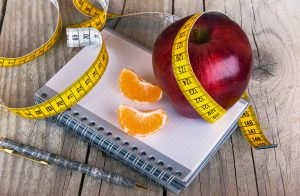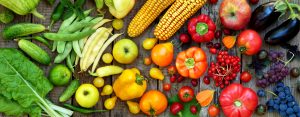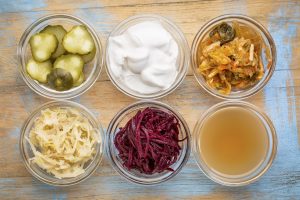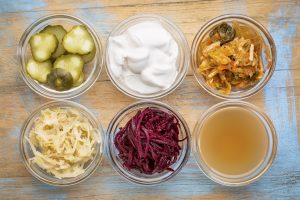
If you’re like me, the day does not begin until I have had my cup of coffee. Whether it be the aroma, the caffeine, or the wake up signal to my digestive system, my body craves coffee from the moment I rise from my evening slumber. Over the years, there have been mixed reviews about whether or not this common habit was helping or harming us. However, a recent report has found that coffee may actually help you live longer.
Coffee and Health
Caffeine may be the first benefit you think about receiving when consuming your cup of joe. However, research has found that energy is not the only good thing that comes from consuming this beverage. Three cups of coffee a day has been found to be the magic number that can provide lower risk of many health conditions including:
- Heart disease
- Diabetes
- Parkinson’s disease
- Uterine and liver cancer
The only exceptions to these positive findings include some studies of unfiltered forms of coffee. French press or espresso, which contain the substances cafestol and kahweol, may slightly increase cholesterol levels. However, the decreased risk of many health conditions seems to outweigh such negative findings. A 2015 study found that consumption of the beverage is linked to an approximate 8 to 15 percent reduction in risk of death, with more benefits linked to those who drank more. In addition, a June 2016 report by the World Health Organization removed coffee from its list of potentially carcinogenic foods.
Coffee and Longer Life
A recent report has found that moderate consumption of coffee, or about three cups a day, has been linked to:
- lower risk of cancers of the prostate, endometrium, skin and liver.
- decreased risk of type 2 diabetes and better insulin and blood glucose control.
- decreased risk of liver disease, gout, and gallstones.
- Lower incidence of cognitive conditions such as dementia, Parkinson’s, depression, and Alzheimer’s.
The health benefits of decreased heart disease and diabetes risk have been linked to the antioxidant effect of chlorogenic acid. Also, the coffee lipids cafestol and kahweol have been linked to possible lower risk of certain cancers and liver disease.
Researchers are not sure of the exact component of the beverage that provides the most health benefits. Also, there is no solid proof that coffee lowers risk of any disease. However, the link between decreased incidence of death and coffee intake is suggested to be a good enough reason to add a bit of the beverage to your daily routine.
Other ways to Improve Length of Life
Besides drinking coffee, there are many small things you can do each day to help improve your quality and quantity of life.
- Eat a fiber-rich diet of fruits and vegetables. Sounds simple enough, but unfortunately just 12-percent of Americans actually eat the suggested 2 cups each of fruits and vegetables each day. Not only do these types of foods contain digestive-friendly fiber, but also contain phytonutrients. Phytonutrients have been found to provide many anti-inflammatory benefits that have been found to help lower risk of chronic disease.
- Stop smoking and lower alcohol intake. Any substance that your body sees as a toxin will put strain on a your health. Smoking in particular constricts blood vessels, therefore increasing risk of heart disease. On the other hand, alcohol can put a strain on your liver since it will have to work extra hard to filter this toxin from your body.
- Reduce stress and get plenty of sleep. Stress can affect sleep and lack of sleep can be stressful. Therefore, it is important to manage one to help the other. Relaxation breathing, yoga, or talking to someone can help you manage stress. For sleep, talk to your doctor about specific medications or supplements, such as melatonin, that may help you catch some more Z’s.
- Take vitamins and supplements daily. If you are not getting enough nutrients from the food you eat, a vitamin and supplement regimen may help. A recent study in China has found a potential link between the health of the gut and longer life. A probiotic supplement daily, such as Biovia 30X by Vita Sciences, may help improve diversity of gut bacteria in your body and promote improved digestive health and immune support.
-written by Staci Gulbin, MS, MEd, RD, LDN
Sources:
Bian, G., et al. (2017) “The Gut Microbiota of Healthy Aged Chinese Is Similar to That of the Healthy Young.” mSphere, 2 (5): e00327-17 DOI: 10.1128/mSphere.00327-17
Harvard Health Publishing: Harvard Medical School (January 2012) “What is it about coffee?”
Harvard Health Publishing: Harvard Medical School (September 25, 2017) “The latest scoop on the health benefits of coffee.”
Harvard Health Publishing: Harvard Medical School (September 2014; reviewed and updated October 31, 2017) “How to boost your immune system”
Medline Health News (November 30, 2017) “Could Your Coffee Habit Lengthen Your Life?”
Medline Health News (November 16, 2017) “CDC Wants America to Eat Its Fruit and Veggies”
 If you have ever tried to lose weight, then you probably have been told to track your calories. Most calorie trackers focus on keeping track of the calories you consume through food. On the other hand, fitness trackers or workout machines may track how many calories you burn during the day. However, is there more to the story of weight loss, or is calories in and calories out the only key to success? A recent report by health experts reveal that there may be more than simple math in the weight loss equation.
If you have ever tried to lose weight, then you probably have been told to track your calories. Most calorie trackers focus on keeping track of the calories you consume through food. On the other hand, fitness trackers or workout machines may track how many calories you burn during the day. However, is there more to the story of weight loss, or is calories in and calories out the only key to success? A recent report by health experts reveal that there may be more than simple math in the weight loss equation. Do you think you eat enough fruits and vegetables every day? You may track your macronutrients, have an apple a day, and be free of digestive concerns but still be missing the mark. A recent report by the Centers for Disease Control (CDC) has found that most adults in the United States could stand to eat a lot more fruits and vegetables each day.
Do you think you eat enough fruits and vegetables every day? You may track your macronutrients, have an apple a day, and be free of digestive concerns but still be missing the mark. A recent report by the Centers for Disease Control (CDC) has found that most adults in the United States could stand to eat a lot more fruits and vegetables each day.
 According to the National Institutes of Health, the average American can live an average of 79 years. However, did you know that a few small lifestyle changes could add years to your life? It was found that for every few pounds you lose you could be adding years to your life.
According to the National Institutes of Health, the average American can live an average of 79 years. However, did you know that a few small lifestyle changes could add years to your life? It was found that for every few pounds you lose you could be adding years to your life. Do you skip breakfast? Does your busy schedule make it hard to eat in the morning? Are you just not hungry in the early hours of the day? You may have heard that breakfast is the most important meal of the day. Recent research has found that this may be true. Skipping your morning meal can deprive your body of many important nutrients vital to overall health.
Do you skip breakfast? Does your busy schedule make it hard to eat in the morning? Are you just not hungry in the early hours of the day? You may have heard that breakfast is the most important meal of the day. Recent research has found that this may be true. Skipping your morning meal can deprive your body of many important nutrients vital to overall health. reflux occurs for twice a week for more than a few weeks. Uncontrolled GERD can lead to respiratory problems or conditions such as esophagitis, which is an inflammation of the esophagus.
reflux occurs for twice a week for more than a few weeks. Uncontrolled GERD can lead to respiratory problems or conditions such as esophagitis, which is an inflammation of the esophagus. foods. This is done by using microorganisms such as yeast or bacteria under the absence of free oxygen. As a result, the fermentation process can lead to increased concentration of vitamins and nutrients in the final product. In addition, other benefits of fermented foods include enhanced flavor and increased digestibility. Finally, it is important to note that fermented foods are only probiotics if the bacteria culture survives long enough to provide benefits to the GI tract.
foods. This is done by using microorganisms such as yeast or bacteria under the absence of free oxygen. As a result, the fermentation process can lead to increased concentration of vitamins and nutrients in the final product. In addition, other benefits of fermented foods include enhanced flavor and increased digestibility. Finally, it is important to note that fermented foods are only probiotics if the bacteria culture survives long enough to provide benefits to the GI tract.